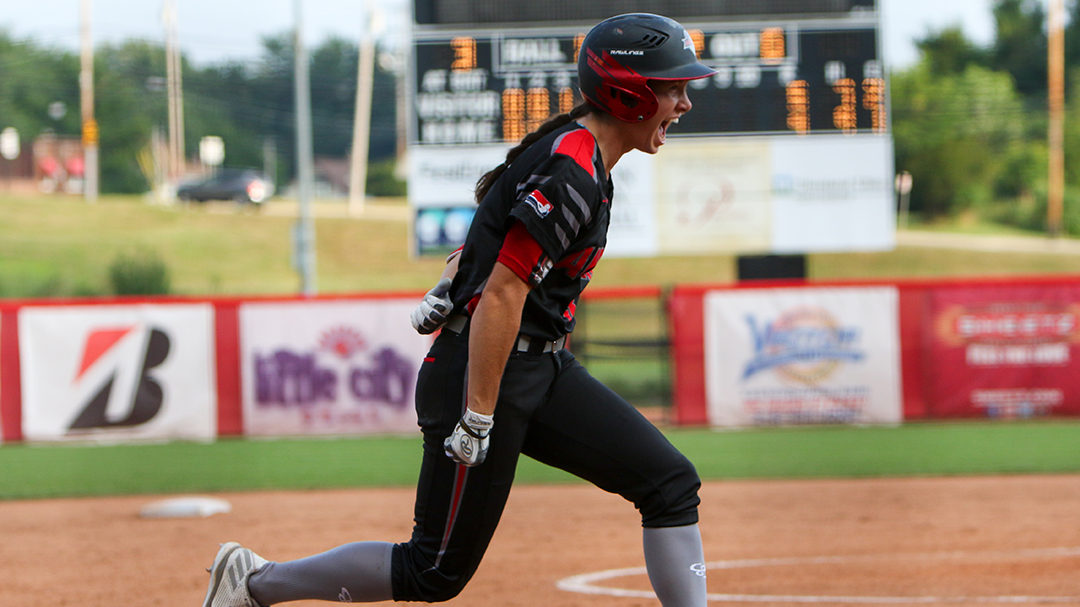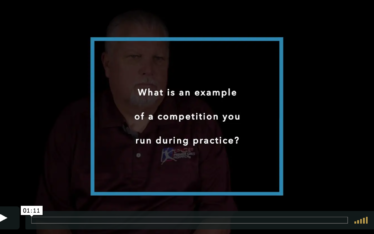Dr. Tim Elmore: What’s Better Than a Competitive Spirit?
ONE Softball has partnered with experts in many fields related to performance, youth sports, softball technical skills and coaching. Below read how child development expert, Dr. Tim Elmore, looks at some important traits of competitive people.
 Photo Credit Andy Drabic, NPF
Photo Credit Andy Drabic, NPF
Oregon quarterback, Marcus Mariota, is one of the nicest college athletes you’ll ever meet. His talent is unquestioned, as this year’s winner [2014] of the Heisman trophy. His teammates talk, however, about how restrained he is; how he picks up his own and other people’s trash on the ground; how he hands out food to homeless guys on the streets; how he encourages people; and how he volunteers at a Boys and Girls Club each week. He has a habit of holding the door open for strangers. Stories of his graciousness are ubiquitous. He thanks fans for appreciating him every single game. And to top it all off, when he gets sacked in a game, he often gets up and pats his tackler on the shoulder, saying, “Nice hit.”

photo credit: mikemac29 via photopin cc
These character traits have scouts and others questioning whether Marcus has the “killer” instinct to play in the NFL. One anonymous pro scout even suggested in Sports Illustrated last month that Mariota might be “too nice.”
All of this leads to a very important question: All talent being equal, is a killer instinct the most important trait an athlete can possess?
What’s More Important Than a Competitive Spirit or “Killer Instinct”?
Please understand that I get the importance of a competitive spirit— or what some call the “killer instinct.” I realize it can give one player an emotional edge over another who doesn’t have it. And let’s face it:. emotions play a huge role, especially in college athletics. They can work for you or against you.
Which is exactly my point here.
I believe Marcus Mariota might possess something even more important than an emotional killer instinct. If you watch him, you have no doubt he’s a competitor. In fact, at one point this season, when he felt his teammates were not playing up to the standard of excellence they agreed upon, he got in their faces and challenged them in an unmistakably vocal way.
But Marcus possesses something more valuable than a killer instinct: control.
In a world where few can control their emotions (and often become slaves to them), Mariota seems to have mastered his, which allows him to both pick up trash others have left on the ground, or stay poised late in the fourth quarter after he’s been sacked and go on to throw a perfect touchdown pass. To master oneself is of utmost importance. Self-control in all situations is what Marines and Navy Seals teach their members. It’s level-headed self-leadership at its finest, to keep your head in every circumstance. Consider this: to play with emotion can boost drive and performance, but it can also lead to behavior that’s out of control. It’s a crapshoot. The killer instinct can lead to scores—or it can lead to penalties, injuries, conflict, misbehavior and even crime.
So a controlled spirit is more valuable than a competitive spirit. It can fight and win… or it can contain itself when needed. Psychologists call it emotional intelligence—the ability to manage one’s emotions. You see it in so many great athletes: Tim Duncan in the NBA, Peyton Manning in the NFL, and Derek Jeter in the MLB, who retired this year having never been ejected from a game. Each one of these players has the respect of teammates and opponents alike.
The Four Ingredients in a Controlled Spirit
Athletes who develop a controlled spirit possess these four traits:
- Self-discipline
They can do what they must, even when they don’t feel like it. - Emotional Security
They’re inwardly secure and don’t need to compare or get defensive. - Core Values or Principles
They live by a set of timeless principles that helps them make decisions easier. - Clear Identity
They have a strong sense of identity and know their strengths and weakness.
I have no doubt Marcus Mariota has a competitive spirit. You can’t be ranked in the top five football teams in the country (or win the Heisman Trophy) without having one. I just believe his controlled spirit is what makes him most valuable.

Republished with permission from GrowingLeaders.com





About The Author
Dr Tim Elmore
Dr. Tim Elmore is the founder and president of Growing Leaders, a non-profit created to develop emerging leaders. Elmore trains middle school, high school and college students with the skills they need to become authentic leaders with huge potential to transform society.